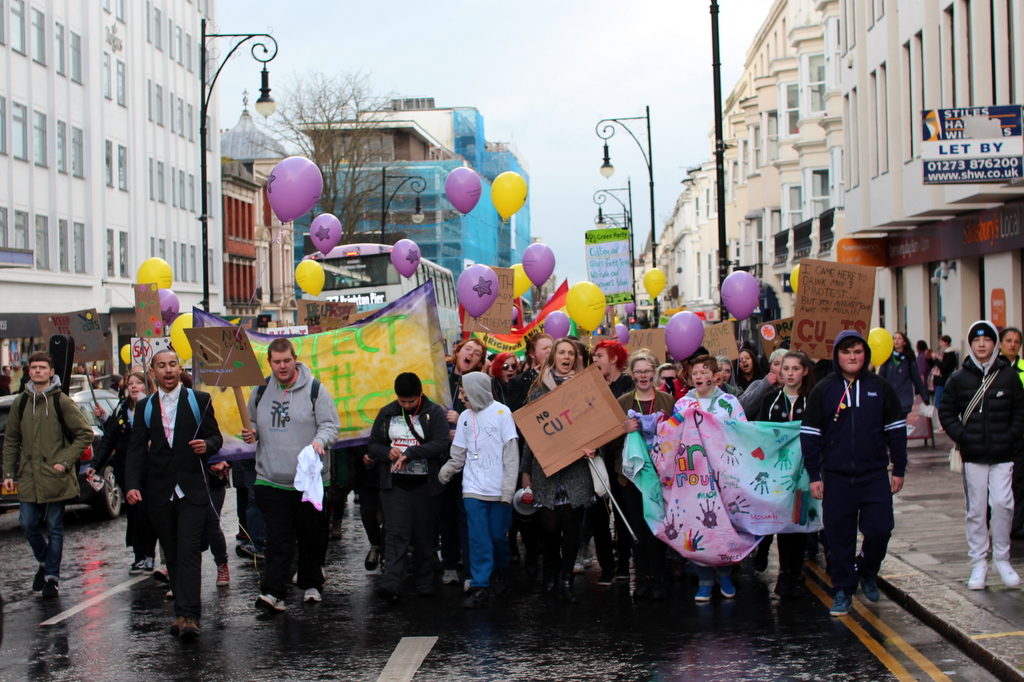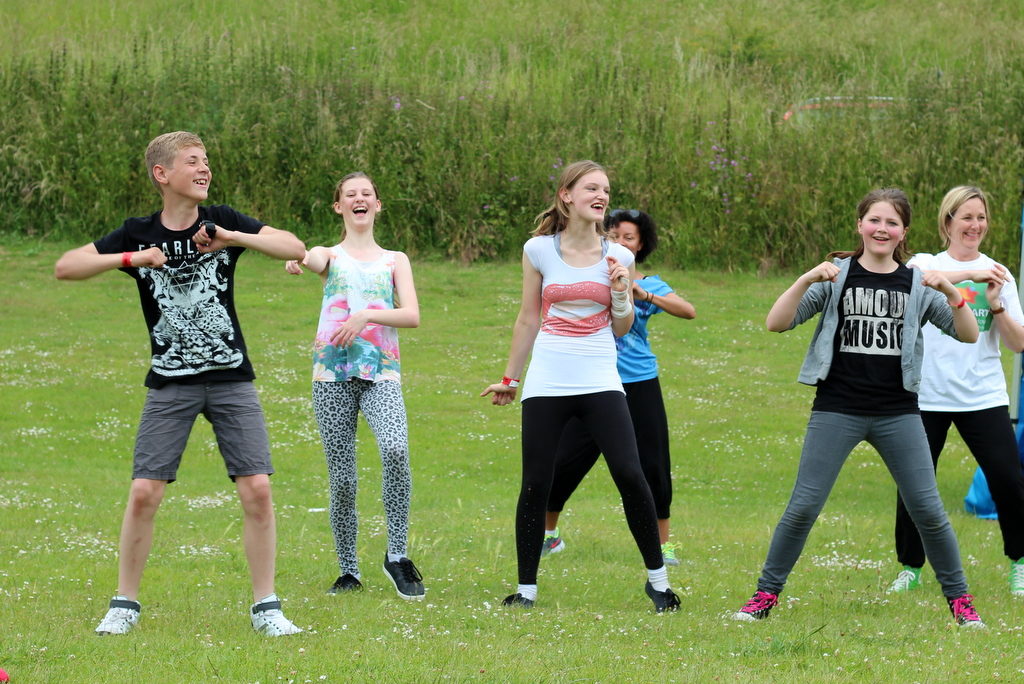Last Autumn, Lewin Kjaer joined our youth team as a youth activities worker. Since then, he has been working in youth centres in some of the most disadvantaged areas of Brighton & Hove. Following the recent threats to youth funding, Lewin felt compelled to write this heartfelt piece about the difficulties young people face today, the important differences between youth workers and teachers, and how to get involved if you want to help support young people locally.
I heard someone say recently "being a teenager sucked" - this stuck with me. When I looked back and thought about it I realised - yeah, it kind of did, not all of the time, but it was tough. Whatever socioeconomic status we were born into and whatever external forces are against us, young people also have to come to terms with a realisation of identity. We are in a constant state of becoming, and for young people it’s very present. Questions we all deal with in life are answered quickly and definitely in youth; those moments when you think ‘this is who I am, this is how I’m going to be’. They may be impermanent answers but the effects on their actions can be strong. If these conclusions are influenced largely by our communities and neighbourhoods then there needs to be positive forces at work there, otherwise any negativity that fosters in these critical years can cause further conflict later on.
When I first started working with young people I thought, ‘I can do this – I remember what it’s like to be a young person, I can relate’.
This is a good start and I’ve come to realise that, although important, it goes deeper than just being a likable person. Young people need understanding and grounded youth workers who they can trust. With that, boundaries are more likely to be respected and they can begin to feel comfortable and engaged in a community setting. By boundaries I mean ways of communicating and interacting with each other - codes of conduct that promote a safe and sound environment, however, they’re often seen as walls that prohibit fun and limit creativity and expression, the authorities of them can often be ridiculed and disrespected.
In institutions like schools where teachers are saturated with high class numbers and nationalised targets, boundaries can come across as generic, irrelevant and uninteresting. Young people are penalised and punished for displaying challenging behaviour while the causes of it are left for the young person to deal with. This is where youth workers can play an important role in young people’s education and development.
Working in youth clubs around Brighton with TDC I’ve experienced challenging behaviour from young people who are disillusioned from, and let down by, the education system. At times they come to youth club and vent their frustration or try to rebel against the boundaries that are put in place.
Thankfully, I’m in a position that offers time and energy to target these frustrations and get young people to challenge their own reactions. I don’t have a specific curriculum that I need them to understand and follow, I want them to feel empowered and engaged with their community and realise that boundaries are useful tools of interaction, and when respected and valued, lead to a more harmonious social experience.
Being involved in youth work, particularly in deprived areas, has changed my impression of young people. Not that I really had prejudgments to begin with, maybe just a slight apprehension, which ultimately is down to fear. I can recall how I felt leading up to the first youth session I was involved in with TDC. I had never worked in that capacity in Brighton before and I was feeling nervous; it’s the fear of the unknown - something some of you may feel when approaching a group of young people on the street. However, once arriving, all nerves went out the window, the members were open and accepting towards me. I looked around the small space and realised the value of it.
I’m reminded of its value each week the sessions run; members always turn up early, they’re usually playing outside before I turn up and I know they look forward to being inside the club.
A great thing about youth clubs is that members of the community, as youth workers, have the opportunity to be positive role models. Working closely and forming strong bonds with young people, as well as helping facilitate strong bonds between them creates a spirit of fellowship, respect and ultimately love rather than fear and intolerance. Youth clubs aren’t just a place to hang out; they can be the missing link, the haven for young people who have nowhere else to go. As a youth worker I’ve seen the benefits of it, simply by spending time listening and offering insight or a new approach to looking at a situation.
Young people who live in some of the most deprived and high crime areas have told me what benefits it has had for them, how they have changed by simply engaging with other people in their community and with new ways of thinking, they have told me how they now feel socially responsible and want to give back to their communities – how amazing is that!
Sadly the future of youth clubs and youth work is under threat - in Brighton with the proposed cuts, small refuges like the ones in Coldean and Craven vale, where I work, may have to close. This is a huge sacrifice when young people are now more vulnerable than ever. New trends developing in schools and on social media are distracting them from realising their true potential. Guidance is necessary, and youth clubs offer the perfect platform.
Getting involved is a great way to integrate with your community. If you’re reading this and feel it’s something you might be interested in, why not find out where your nearest youth club is and ask about volunteering opportunities. You may feel nervous like I did on my first day, but I assure you that the experience is a progressive and fulfilling one. Go for it!
Help us make a difference
The cuts to youth services are a huge threat to the young people of our city. With your support, we can continue to stand up for them.
- Sign the petition telling the council "Invest in our City’s future!"
- Use the hashtag #protectyouthservices to make some noise about the impact of the cuts
- Join the facebook group and follow @PYScampaign on twitter
- Read what our Youth Project Manager Adam Muirhead has written about the impact of cuts to youth services.




